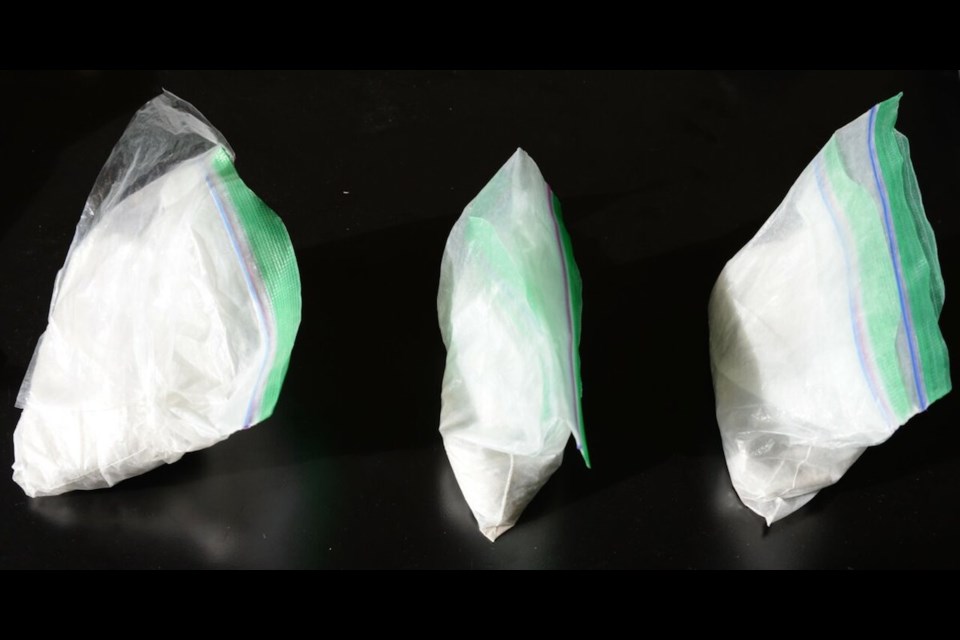A Sault Ste. Marie drug dealer, nabbed with nearly half a kilogram of fentanyl, will spend eight years behind bars in a federal penitentiary.
Mickey Buonomo was sentenced to the prison term Thursday for what was described as an "enormous quantity" of the deadly drug that cops discovered during "a high-risk traffic stop" in 2021.
Officers located 463 grams of fentanyl, valued at $102,000, in a backpack they found near his feet in the front passenger seat of the vehicle.
A jury found Buonomo, 44, guilty of possession of fentanyl for the purpose of trafficking, possession of methamphetamine, and possession of a prohibited weapon for owning a taser.
He later pleaded guilty to a further charge involving that weapon.
When he imposed the time in the penitentiary, Superior Court Justice Patrick Boucher, regional senior judge for the northeast region, said the appropriate range for such fentanyl offences, is eight to 15 years.
"Eight years is fit and just," he concluded.
Federal prosecutor Joe Chapman had called for 11 years for dealing a deadly drug that is "the scourge of a generation," that has killed so many people in this community and across the country.
He argued that what Buonomo had was "beyond general local street dealing," particularly when you have that amount of a drug, as well as a weapon.
Defence lawyer Anthony Orazietti had asked the judge to impose seven years.
His client's involvement in the drug culture wasn't for financial gain, he said. The underlying cause was to feed his addiction.
In his decision, Boucher noted the amount of fentanyl involved in this case "is staggering considering the impact even a small amount can have on a user."
However, the judge said, he is unable to conclude that Buonomo had a role in running the fentanyl trafficking operation.
Boucher described the fact that Buonomo had a prohibited conductive energy weapon as an aggravating factor even if "it isn't as dangerous as a firearm."
As well, he cited a number of mitigating factors including a significant gap in the offender's criminal record.
Buonomo maintained 20 years of sobriety then experienced a downward spiral following his father's death four years ago.
Pre-sentence and Gladue reports provided favourable information, the judge said.
During his time in custody following his arrest, he completed every available self-help program, continued to seek counselling and was described as co-operative and polite.
In addition to the prison term, Boucher imposed a life-time weapons prohibition and ordered Buonomo to provide a DNA sample for the national database.
